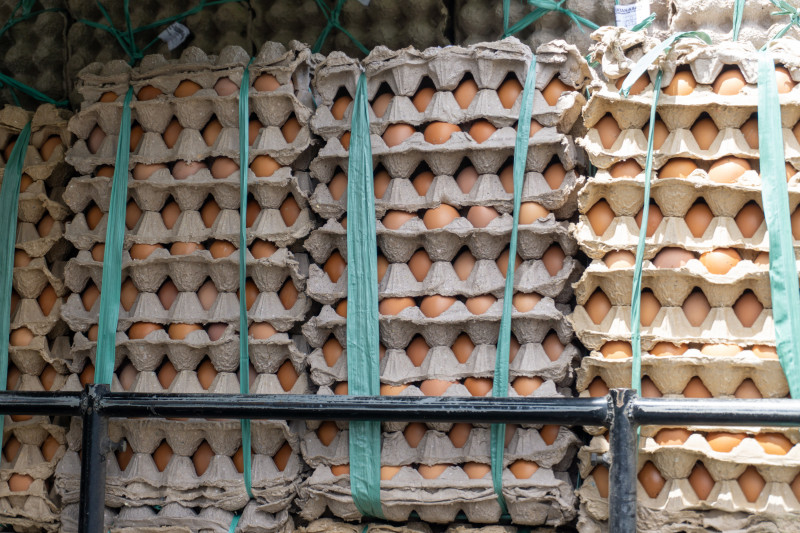English
Norwegian supermarkets reassure: this time there will be no egg shortage before Easter

Egg shortages are still noticeable in the Norwegian market. stock.adobe.com/licencja standardowa
Although there is still a shortage of eggs in the Norwegian market, last year's situation with empty shelves in stores is unlikely to repeat this year during Easter. According to Statistics Norway, the fjord country imported just over 4100 tons of eggs in 2024 due to the deficit. In February of this year, 44 tons more eggs were imported from abroad than in January.
The company Norgesgruppen, which owns grocery stores such as Kiwi, Meny, and Joker, claims that Easter this year should abound in a large number of eggs. – Customers may encounter differences in stores and may have to choose a different type or brand than usual. But overall, we have eggs – says communications manager Kine Søyland in a conversation with NTB.
There is still a noticeable shortage in the Norwegian market. During the Easter period, demand is always high, but according to Søyland, fewer people are hoarding eggs this year than previously at Easter and before Christmas.
Rema 1000 also emphasizes that egg sales over the past four weeks have remained at a relatively stable level compared to last year. – Importing Danish eggs has largely solved the supply shortage problem, leading to reduced stockpiling. The situation may change, but we have goods in stock and are continuously replenishing them – says purchasing director Line Aarnes.

Due to feed with excessively high levels of vitamin D, 60,000 chickens had to be slaughtered.Source: stock.adobe.com/standard license
In Coop stores, there may be a short-term shortage of some varieties of eggs, but the brand assures that there are generally plenty of products on the shelves.
Why is there a shortage of eggs in Norway?
The reasons for the prolonged shortage of eggs produced in Norway are complex.
Nortura, which acts as the market regulator for eggs, published its forecast for 2025 in January, according to Nationen. The cooperative predicted that the egg shortage would last until autumn. In early February, the situation worsened when agricultural supplier Felleskjøpet Agri provided feed with excessively high levels of vitamin D. This led to the withdrawal of over 670 tons of eggs and the slaughter of 60,000 chickens. This partly explains why egg imports in February were significantly higher than in January.
DNV conducted an external investigation into irregularities in Felleskjøpet. The report was originally supposed to be ready by April 7, but the publication date has been postponed to after Easter.
Sources: NTB, MojaNorwegia.pl
Dodaj komentarz
Wyślij
